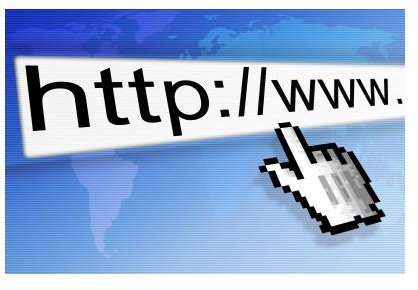Current Laws Regulating Employee Email and Internet Privacy
Invasion of privacy

On the job, many employees will use the company’s computer not just for work, but for personal use too. Since this is the case, some companies will make it a habit to monitor employees’ Internet and email usage to ensure they are not wasting the company’s time and money for inappropriate online activities when they need to be doing work. In a nutshell, when it comes to workplace privacy, just remember that an employer may be monitoring your Internet domains (see image). Therefore, all employees should be careful on where they surf the Web.
Even though it seems that employers are being too strict on their employees, employers say they have a right to monitor employees’ use of email, the Internet, and company computers at work. Employees claim that employers are invading their privacy. Employers then argue that employees are paid to work, not to do use company time and computers for personal entertainment. They also often claim that there is no such thing as workplace privacy, but they are wrong! In fact, there are privacy laws that protect employee privacy.
Laws Regulating Email and Internet Privacy
Privacy is still seen as a leading problem in the United States. In fact, workplace privacy concerns have already appeared in court. Despite the U.S. Privacy Laws and the Electronic Communications Privacy Act (ECPA), which cover email privacy, courts have reached different verdicts. As a result, workplace privacy has caused lasting problems.
Several states have enacted email and Internet privacy laws that prohibit the intentional interception of electronic communications, but many employers still take it upon themselves to disregard these laws and will remind their employees that computers, emails and Internet systems are the company’s property and are subject to monitoring. In such a workplace, employers will either place a ban on all non-business uses of the email system or they will oversee their employees’ email communications and Internet access.
Considerations: Employers and Employees Obligations
There are some things that companies can do to address privacy concerns before an employee starts working. Some will have an electronic communications policy in place. In brief, it should describe the company’s policy on both email and Internet usage. On the other hand, employees should be aware that access to the Internet or their email using workplace computers is a privilege, not a right; therefore, all employees should adhere to the policies concerning computer, email and Internet usage.
Employers and Employees Obligations
-
For Employees: It may be fair to say that unacceptable use of the Internet or email by employees will result in disciplinary action.
-
For Employers: If employers are to monitor employees’ email or Internet transmissions, they must inform workers about the monitoring before it begins.
Considerations
-
For Employees: Do not access inappropriate websites or spend too much time either navigating the Internet or reading or replying to emails while using a workplace computer.
-
For Employers: Spend less time monitoring employees or limit their access to the Internet. Consider filtering the content accessed.
In summary, it is the employer’s responsibility to address privacy rights in the workplace, and it is the employee’s responsibility to make use of the electronic systems policies.
Image credit: Internet Domain (by Danilo Rizzuti)
References Section
Privacy & Civil Liberties: https://it.ojp.gov/default.aspx?area=privacy&page=1279#contentTop
Regulating Employee Email: https://www.laborlawyers.com/showarticle.aspx?Type=1119&ArticleType=-1&NewsLetterType=3386&Show=11996
Sample Electronic Communication Policy: https://www.riskvue.com/articles/fs/fs9910b.htm